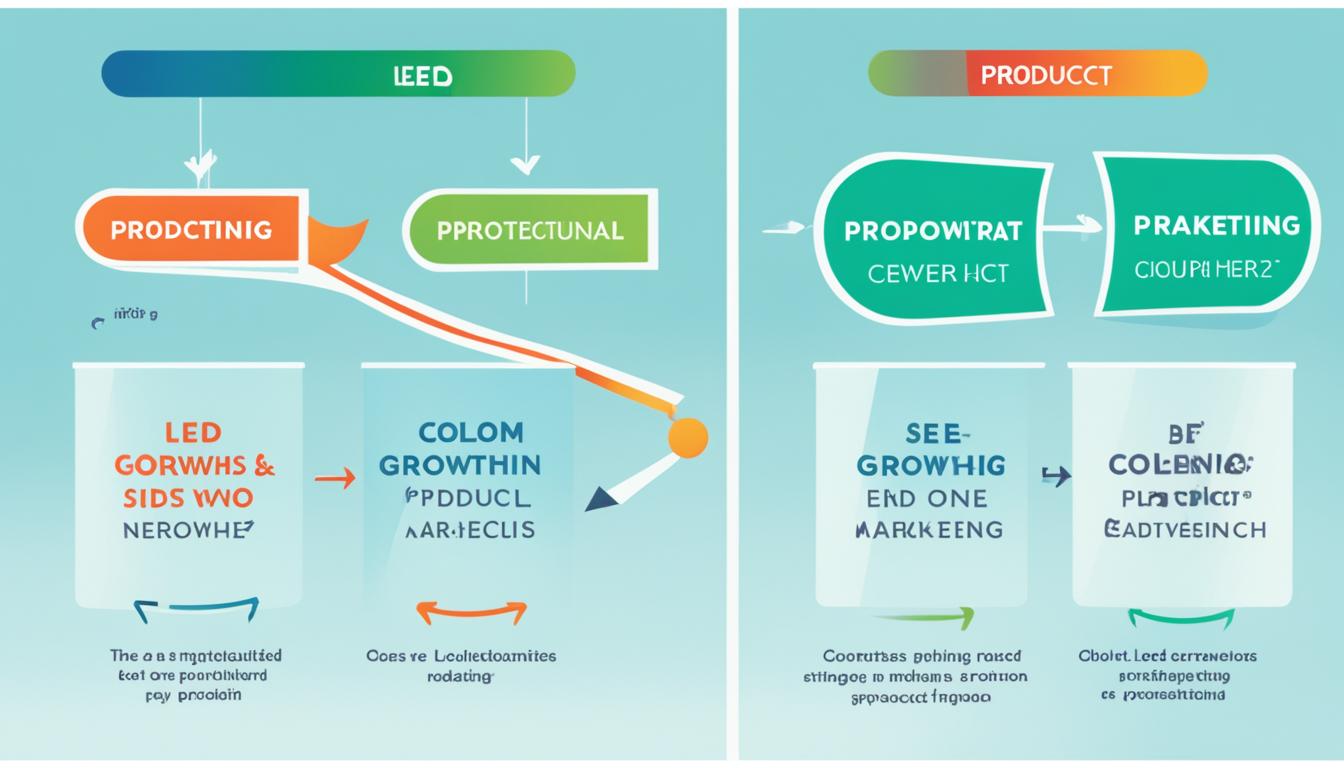The sales force plays a crucial role in driving sales operations and executing marketing strategies. It comprises employees who engage with customers, sell products or services, and cultivate strong customer relationships. The sales force is like the eyes and ears of a company, providing direct contact with customers and valuable insights. It promotes sales through various communication flows, such as identifying potential customers, offering customized solutions, and gathering feedback to optimize processes. Sales force structure can be location-based, product-based, or client-based. There are two types of sales forces: outside sales force and inside sales force. Sales force management involves recruitment, training, performance evaluation, and rewards to maintain a high level of performance. Examples of sales forces in marketing include sales representatives in retail stores. Effective sales force management is crucial for achieving sales objectives and fostering business growth.
Key Takeaways:
- Sales force plays a crucial role in driving sales operations and executing marketing strategies.
- Sales force engages with customers, sells products or services, and cultivates strong customer relationships.
- Sales force provides direct contact with customers and valuable insights.
- Sales force promotes sales through various communication flows and gathers feedback to optimize processes.
- Sales force management involves recruitment, training, performance evaluation, and rewards to maintain performance.
Sales Force Definition and Role in Marketing
The sales force is a team that engages, convinces, and sells products or services to customers. It serves as the link between a company and its customers, representing both parties. The sales force plays a vital role in establishing direct contact with customers, understanding their needs, and offering solutions. Outsourced Sales for Businesses can help companies expand their reach and efficiency by leveraging external expertise. By making the buying process easier for customers, the sales force contributes to the execution of sales and marketing strategies.
A Crucial Connection
The sales force acts as a crucial connection between a company and its customers. It serves as the face of the company, representing its values and offerings. Through direct engagement, the sales force establishes relationships, builds trust, and guides customers through the buying process. By understanding customer needs and preferences, the sales force can tailor solutions to meet specific requirements, leading to increased customer satisfaction and loyalty.
Driving Sales and Marketing Strategies
The sales force plays an integral role in driving sales and marketing strategies. They are responsible for identifying potential customers, communicating the value of products or services, and closing sales. Through their interactions with customers, they gather insights that help inform marketing strategies and product development. Their knowledge of customer preferences and market trends enables companies to adapt and refine their offerings to better meet customer needs, ultimately driving sales growth.
Enhancing Customer Experience
By engaging directly with customers, the sales force plays a crucial role in enhancing the customer experience. They provide personalized recommendations and solutions, address customer concerns, and ensure a smooth buying process. Their expertise and product knowledge empower customers to make informed decisions, creating a positive brand experience. Through their interactions, the sales force not only drives sales but also contributes to building long-term customer relationships.
Importance of Sales Force in Marketing
The sales force is essential for companies in marketing as it enables direct customer engagement and helps adjust offerings based on customer feedback. By being in direct contact with customers, the sales force understands their preferences and can provide valuable insights for product development and marketing strategies. The sales force plays a significant role in building and maintaining strong customer relations, ultimately leading to increased sales and business growth.
To emphasize the importance of the sales force in marketing, consider the following key points:
- Direct Customer Engagement: Through face-to-face interactions or virtual communication, the sales force establishes direct contact with customers. This allows them to understand customer needs, address concerns, and build trust.
- Feedback and Market Insights: By engaging with customers, the sales force gathers feedback on products, services, and marketing campaigns. This feedback provides valuable insights for improving offerings and tailoring marketing strategies to meet customer demands.
- Customer Relationship Building: The sales force develops and nurtures strong customer relationships by providing personalized attention and support. This fosters customer loyalty, repeat purchases, and positive word-of-mouth, which are vital for sustainable business growth.
- Increasing Sales: Through effective customer engagement and relationship building, the sales force drives sales by converting leads into customers and maximizing revenue from existing customers.
Overall, the sales force serves as a vital link between a company and its target market. It enables companies to adapt offerings based on customer preferences, gather market insights, and strengthen customer relationships. By recognizing and harnessing the importance of the sales force in marketing, companies can achieve greater sales success and establish a competitive advantage.
Functions of a Sales Force
The sales force performs various functions to drive sales and contribute to the success of marketing efforts. Here are the key functions of a sales force:
1. Identifying Potential Customers
The sales force plays a vital role in identifying potential customers who may be interested in the products or services offered by a company. Through market research, customer profiling, and lead generation strategies, the sales force can pinpoint individuals or businesses with the highest likelihood of making a purchase.
2. Informing Customers about Products or Services
Once potential customers are identified, the sales force takes on the responsibility of informing them about the features, benefits, and value propositions of the products or services offered. They effectively communicate the unique selling points and address any questions or concerns the customers may have.
3. Offering Customized Solutions
An effective sales force goes beyond generic sales pitches and offers customized solutions to meet the specific needs and requirements of individual customers. They listen attentively, understand the customer’s pain points, and present tailored recommendations that address these challenges.
4. Building Customer Relationships
Building long-term customer relationships is a crucial function of the sales force. They focus on developing trust, delivering excellent customer service, and providing ongoing support. By nurturing relationships, the sales force ensures repeat business and customer loyalty.
5. Gathering Customer Feedback
The sales force is a valuable source of customer feedback. They actively listen to customer concerns, complaints, and suggestions, relaying this information to the company. Customer feedback is crucial for process optimization, product improvement, and enhancing the overall customer experience.
The functions of a sales force form the backbone of successful sales and marketing strategies. By identifying potential customers, informing them about products or services, offering customized solutions, building customer relationships, and gathering customer feedback, the sales force contributes to increased sales and fosters business growth.
Characteristics of an Effective Sales Force
An effective sales force possesses several key characteristics that contribute to their success in driving sales and building strong customer relationships. These characteristics include:
- Intrinsic Motivation: Effective salespeople are internally driven and motivated to achieve sales targets. Their passion for their work helps them stay focused and overcome obstacles.
- Strong Interpersonal Skills: Building rapport and establishing trust with customers are essential for sales success. Effective salespeople excel in communication, active listening, and understanding customer needs.
- Customer Relationship Building: An effective sales force understands the importance of building and nurturing long-term customer relationships. They go beyond making a sale by providing personalized attention and exceptional customer service.
- Adaptability: The sales landscape is ever-changing, and an effective sales force is adaptable to new market trends, customer preferences, and sales strategies. They are quick to adjust their approaches to meet evolving customer needs.
- Resilience: Sales can be challenging, and effective salespeople possess the resilience to persevere through rejections, setbacks, and obstacles. They maintain a positive attitude and are motivated to keep pushing forward.
Furthermore, effective salespeople are proactive in seeking out opportunities and continuously improving their sales techniques. They stay updated with industry knowledge, stay ahead of market trends, and leverage technology to drive their sales efforts.
| Characteristics | Description |
|---|---|
| Intrinsic Motivation | Effective salespeople are internally driven and motivated to achieve sales targets. |
| Strong Interpersonal Skills | Building rapport and establishing trust with customers are essential for sales success. |
| Customer Relationship Building | An effective sales force understands the importance of building and nurturing long-term customer relationships. |
| Adaptability | An effective sales force is adaptable to new market trends, customer preferences, and sales strategies. |
| Resilience | Effective salespeople possess the resilience to persevere through rejections, setbacks, and obstacles. |
Sales Force Effectiveness
Sales force effectiveness is a crucial measure of a sales force’s ability to achieve desired outcomes and meet sales objectives. It encompasses numerous key indicators that indicate the effectiveness of a sales force in driving business growth and success. These indicators include:
- Meeting sales targets
- Ensuring customer satisfaction
- Building customer loyalty
- Gaining market share
- Contributing to profitability
Effective sales force management plays a pivotal role in enhancing sales force effectiveness. It involves various aspects, including recruitment, training, performance evaluation, and rewards. By implementing effective management strategies, companies can optimize the performance of their sales force and achieve the desired sales outcomes.
Sales Force Effectiveness Indicators
| Indicator | Description |
|---|---|
| Meeting sales targets | The ability of the sales force to achieve or exceed the set sales targets and quotas. |
| Customer satisfaction | The level of satisfaction customers experience in their interactions with the sales force. |
| Customer loyalty | The extent to which customers remain loyal to a brand, resulting from positive interactions with the sales force. |
| Market share | The percentage of the total market that a company’s sales represent, indicating the growth and success of the sales force. |
| Profitability | The ability of the sales force to generate revenue and contribute to the overall profitability of the company. |
Sales Force Strategy
Sales force strategy is a crucial component of a company’s overall marketing strategy. It involves the development and implementation of plans and tactics to achieve sales objectives and drive revenue. An effective sales force strategy aligns with the organization’s goals and ensures that the sales force is equipped with the necessary resources and capabilities to meet customer needs and close deals.
One key aspect of sales force strategy is setting clear sales goals. These goals should be specific, measurable, attainable, relevant, and time-bound (SMART goals). By defining clear objectives, the sales force can focus its efforts and track progress effectively.
In addition, determining target markets and customer segments is an essential part of sales force strategy. Understanding the demographics, preferences, and buying behaviors of different customer groups allows the sales force to tailor its approach and messages to resonate with potential buyers.
To effectively execute sales objectives, allocating resources is key. This includes allocating budgets, personnel, and technology to support the sales force in achieving their goals. By providing the necessary tools and support, companies can empower their sales team to deliver exceptional results.
Sales Process Definition
Defining the sales process is another crucial element of sales force strategy. The sales process outlines the step-by-step approach that the sales force follows to convert leads into customers. It typically includes stages such as prospecting, qualifying leads, making presentations, negotiating, and closing deals.
Developing a well-defined sales process ensures consistency and enables the sales force to work efficiently and effectively. It also allows for better tracking and measurement of performance, providing valuable insights for continuous improvement.
Formulating sales strategies is the final component of sales force strategy. This involves determining the best approaches and tactics to engage and persuade potential customers. Sales strategies can include identifying competitive advantages, developing value propositions, and implementing effective sales techniques.
An effective sales force strategy requires ongoing monitoring, evaluation, and adjustment as needed. By regularly reviewing performance metrics and customer feedback, businesses can identify areas for improvement and make necessary changes to optimize their sales force’s effectiveness.
Overall, sales force strategy is vital for organizations looking to achieve their sales objectives and drive revenue. By developing a well-defined strategy that aligns with the overall marketing goals, companies can equip their sales force with the necessary tools and guidance to succeed in a competitive market.
Sales Force Management
Sales force management encompasses various activities to ensure the efficient functioning and optimal performance of the sales force. It involves analyzing, planning, implementing, and evaluating sales force strategies, processes, and outcomes. Effective sales force management is critical for maintaining a high level of performance and achieving sales objectives.
One of the key aspects of sales force management is the formation of an appropriate sales force structure. This involves determining the optimal size and composition of the sales force, considering factors such as market segments, customer profiles, and geographical locations. By carefully structuring the sales force, companies can ensure that it is well-positioned to effectively reach and engage with target customers.
Recruitment is another essential element of sales force management. Hiring the right employees with the necessary skills, knowledge, and competencies is crucial for building a high-performing sales force. Companies should develop robust recruitment processes to attract talented individuals who are aligned with the organization’s sales goals and values.
Training and development programs play a vital role in enabling sales force effectiveness. Ongoing training helps salespeople enhance their product knowledge, selling techniques, and customer interaction skills. By investing in continuous learning and development, companies can equip their sales force with the tools and knowledge needed to excel in their roles.
Evaluating sales force performance is an integral part of effective sales force management. Performance evaluation allows companies to assess individual and team performance, identify areas for improvement, and provide feedback and coaching. By adopting a data-driven approach to performance evaluation, companies can measure key performance metrics, such as sales targets, customer satisfaction, and sales force productivity.
Reward and recognition programs are essential for motivating and incentivizing the sales force. By acknowledging and rewarding exceptional performance, companies can encourage salespeople to strive for excellence and achieve their targets. Effective reward programs should align with sales objectives and provide tangible incentives that drive sales force motivation and engagement.
Benefits of Effective Sales Force Management
An efficient sales force management system provides several benefits for businesses:
- Improved sales performance and revenue generation.
- Enhanced customer satisfaction and loyalty.
- Better alignment between sales and marketing strategies.
- Increased sales force productivity and efficiency.
- Reduced turnover and better retention of top performers.
By effectively managing the sales force, companies can optimize their sales operations and drive business growth. Companies that prioritize sales force management are well-positioned to gain a competitive advantage in the market.
Sales Force Management Table
| Components of Sales Force Management | Description |
|---|---|
| Sales Force Structure | Determining the optimal size and composition of the sales force based on market segments, customer profiles, and geographical locations. |
| Recruitment | Hiring the right employees with the necessary skills, knowledge, and competencies to build a high-performing sales force. |
| Training and Development | Providing ongoing training and development programs to enhance salespeople’s product knowledge, selling techniques, and customer interaction skills. |
| Performance Evaluation | Measuring individual and team performance to assess sales force effectiveness, identify areas for improvement, and provide feedback and coaching. |
| Reward and Recognition | Implementing reward and recognition programs to motivate and incentivize the sales force, driving performance and engagement. |
Effective sales force management encompasses a holistic approach to optimize sales performance, drive customer satisfaction, and achieve business objectives.
Salesforce in Marketing Examples
Salesforce, a leading customer relationship management (CRM) software provider, offers companies the tools to build and manage strong customer relationships. Within the realm of marketing, Salesforce provides numerous examples of how it can be effectively utilized to enhance customer interactions, optimize campaigns, and deliver seamless experiences across multiple channels.
One such example of Salesforce in marketing is the use of its CRM platform by sales representatives in retail stores. These professionals leverage Salesforce to inform customers about product specifications and features, listen attentively to their requirements, and provide valuable assistance throughout the purchasing process. Salesforce empowers sales teams by enabling them to personalize customer interactions based on individual needs, enhancing the overall shopping experience.
The benefits of implementing Salesforce in marketing extend beyond traditional retail environments. This powerful CRM software allows businesses to streamline their marketing campaigns, ensuring targeted messaging reaches the right audience at the right time. With Salesforce, companies can gather and analyze valuable customer data, enabling them to create personalized marketing strategies that resonate with their target market.
Moreover, Salesforce enables businesses to deliver seamless customer experiences across various channels. By integrating customer touchpoints such as social media, email, and in-person interactions, companies can ensure consistency and continuity throughout the customer journey.
Examples of Salesforce in Marketing
| Example | Description |
|---|---|
| Salesforce CRM in Retail Stores | Empowers sales representatives to provide personalized assistance, inform customers about products and specifications, and assist throughout the buying process. |
| Streamlining Marketing Campaigns | Enables businesses to optimize marketing efforts by utilizing advanced data analytics, segmenting target audiences, and delivering targeted messaging. |
| Omnichannel Customer Experience | Integrates customer touchpoints, such as social media, email, and in-person interactions, to provide a seamless and consistent experience across multiple channels. |
These examples demonstrate the versatility of Salesforce in marketing and highlight its ability to enhance customer engagement, optimize marketing campaigns, and deliver exceptional experiences. By leveraging the insights and capabilities provided by Salesforce, businesses can cultivate strong customer relationships and drive sustainable growth.
What Does Salesforce Do?
Salesforce offers technology and services to help businesses build strong, lasting customer relationships. Their CRM software provides a centralized location to store, track, and manage customer information, breaking down silos between departments. Salesforce helps companies connect with customers through personalized interactions, optimize marketing campaigns, and streamline sales, service, and IT processes. With the use of AI and real-time data, Salesforce empowers businesses to deliver exceptional customer experiences.
Key Features of Salesforce:
- Customer Relationship Management (CRM): Salesforce’s CRM software enables businesses to effectively manage and nurture customer relationships.
- Data Management: Salesforce provides a centralized database for storing and tracking customer information, allowing for seamless integration.
- Personalized Interactions: With Salesforce, businesses can tailor their communications and offerings to meet individual customer needs and preferences.
- Marketing Optimization: Salesforce offers tools for managing and optimizing marketing campaigns, ensuring maximum impact and ROI.
- Salesforce Automation: The platform automates various sales processes, improving efficiency and productivity.
- Service and Support: Salesforce enables businesses to provide exceptional customer service and support through streamlined processes and case management.
- Artificial Intelligence: Salesforce leverages AI technologies to provide insights, automate tasks, and enhance decision-making.
By leveraging Salesforce’s technology and services, businesses can transform their customer relationship management and drive growth in their sales and marketing efforts.
| Benefits of Salesforce | Features |
|---|---|
| Improved Customer Relationships | CRM, Personalized Interactions |
| Enhanced Marketing Campaigns | Marketing Optimization |
| Streamlined Sales Processes | Salesforce Automation |
| Efficient Service and Support | Service and Support |
| Informed Decision-Making | Artificial Intelligence |
How Does Salesforce Work?
Salesforce operates through a powerful combination of CRM (Customer Relationship Management), AI (Artificial Intelligence), data integration, and trust. Their CRM software provides companies with a comprehensive and unified view of their customers, integrating data from various sources and delivering real-time insights.
The Role of CRM
At the core of Salesforce’s functionality is its CRM software, which enables businesses to manage customer relationships effectively. With Salesforce CRM, companies can streamline their sales, marketing, and service processes, facilitating collaboration across departments and breaking down silos. The CRM software acts as a central repository for customer data, ensuring that every interaction and touchpoint with customers is logged, tracked, and analyzed. This holistic view of customer information allows businesses to personalize their interactions and provide seamless customer experiences across channels.
AI-Powered Features
Salesforce leverages the power of AI to enhance productivity and drive intelligent automation. One notable AI feature is Einstein for Sales, which applies machine learning algorithms to analyze customer data, predict buying behaviors, and provide personalized recommendations for sales representatives. This enables sales teams to prioritize leads more effectively and tailor their sales strategies to individual customers. Additionally, Einstein for Marketing utilizes AI to automate marketing campaigns, segment audiences, and deliver hyper-personalized content, increasing engagement and conversions.
Data Integration with Data Cloud
Data Cloud is a key component of Salesforce that enables businesses to access and harmonize customer data from various sources. It allows companies to enrich their existing customer data with external data, such as demographic information or behavioral data, providing a more comprehensive understanding of their target audience. By integrating and analyzing this diverse dataset, businesses can gain valuable insights and make data-driven decisions to optimize their marketing campaigns and sales strategies.
Trusted Platforms and Security
Salesforce understands the importance of data security and provides trusted platforms to ensure the confidentiality and integrity of customer information. One such platform is Einstein 1, which simplifies IT processes by automating manual tasks, managing security configurations, and enabling seamless data migration. With robust security measures, Salesforce ensures that customer data is protected and compliant with privacy regulations.
| Key Features | Benefits |
|---|---|
| Unified view of customer data | Enhanced customer insights and personalized experiences |
| AI-powered features | Increased productivity, intelligent automation, and personalized recommendations |
| Data Cloud integration | Comprehensive customer data and actionable insights |
| Trusted platforms and security | Confidentiality and integrity of customer data |
Conclusion
In conclusion, the sales force plays a vital role in driving sales operations and executing marketing strategies. Its functions, characteristics, and effectiveness are crucial for business growth. Effective sales force management, a well-defined sales force strategy, and the use of technologies like Salesforce can optimize sales performance and customer engagement. By understanding the role and impact of the sales force in marketing, businesses can enhance their competitive advantage and achieve success in their sales and marketing efforts.




